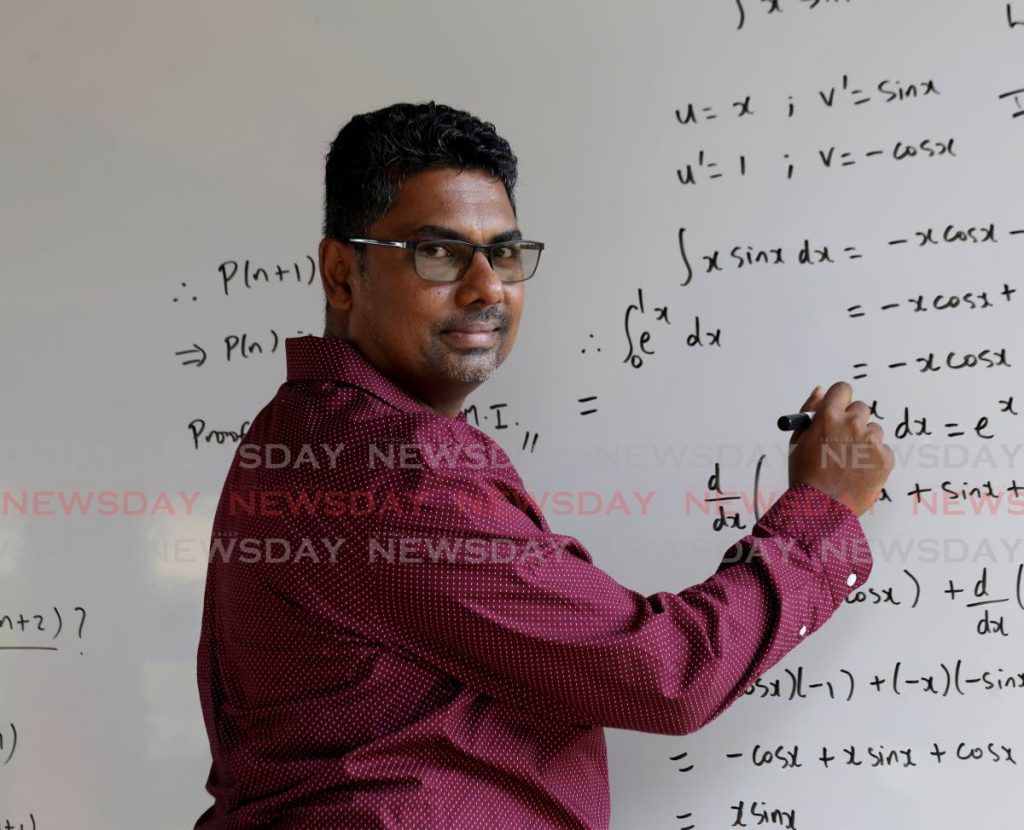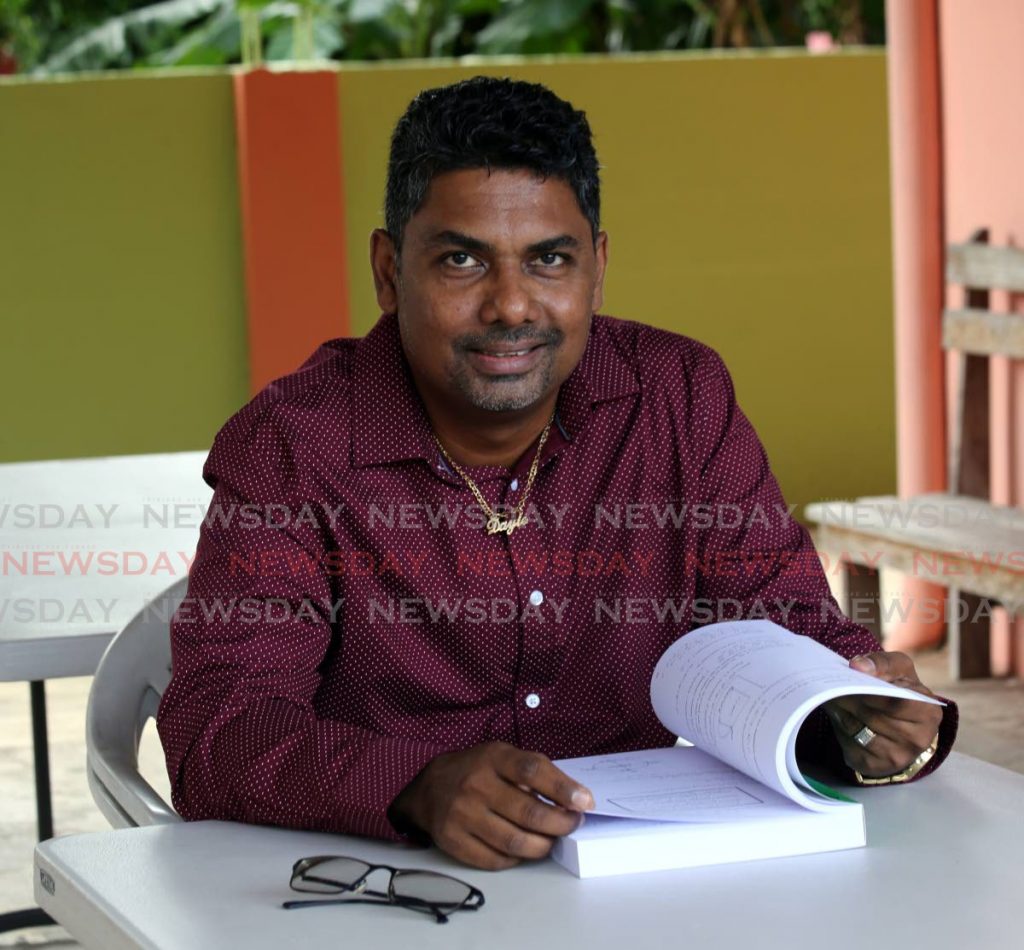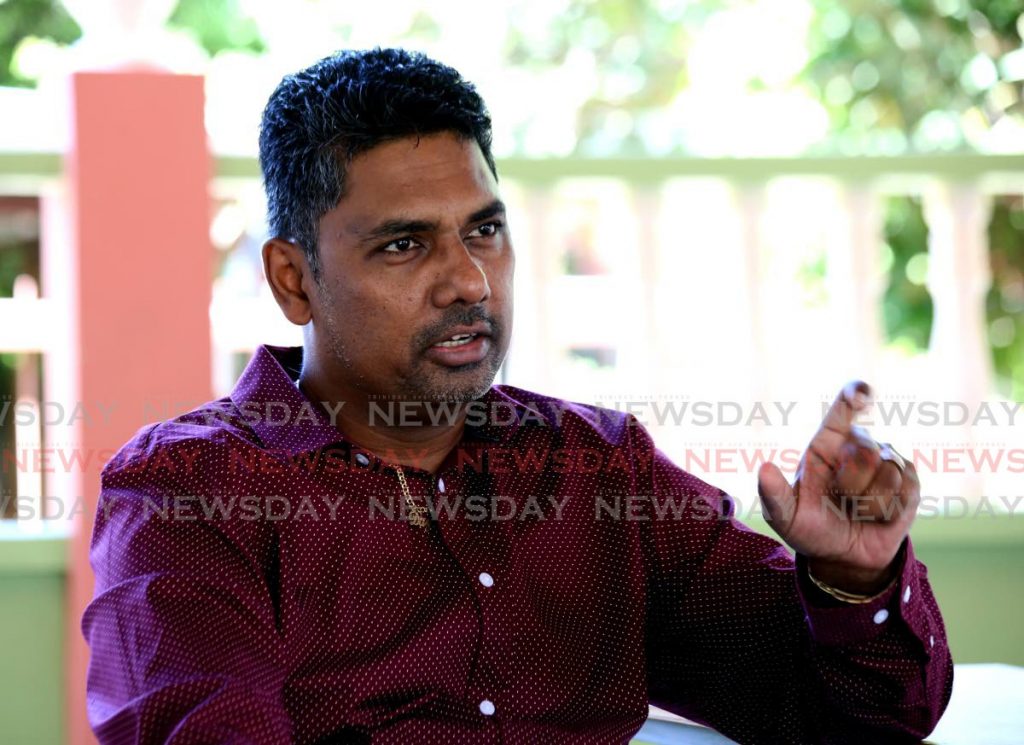Beyond the blackboard: Why mathematics matter in digitisation push

Last week it was announced that education and training would receive the lion’s share of the 2022 budget with an allocation of $6.9 billion.
It was also announced that tax exemptions would be made for companies specialising in digitisation and technology solutions.
There is the hope that this drive for skills training will overlap with this country’s digitisation push.
But while more money and policies will give shape to this drive, one teacher says the first steps behind this modernisation will not happen in Parliament but in the nation’s classrooms.
Speaking with Sunday Newsday at his San Juan home last Friday, mathematician and academic Dr Dayle Jogie says TT’s digitisation is necessary and must be supported by a good understanding of mathematics.
Like physics and chemistry, principles of information technology are rooted in mathematics.
Without mathematics, concepts like programming and computing would be impossible.
With 17 years teaching experience at the university and secondary school levels, Jogie has seen numbers, equations, graphs and programmes in their different forms and is committed to helping others understand the importance of these concepts.
Jogie’s passion for numbers began at a relatively young age, when his father who was also a mathematics teacher taught him and his siblings to count using the card game of All Fours.
“It really helps with your memory and if you don’t have any chalk on the board you learn to keep a mental check of your count.”
Jogie took this passion for mathematics with him through secondary school eventually choosing to study mathematics and statistics at McGill University, Canada, before taking a break and returning to Trinidad in 2004.
While in Trinidad, Jogie found work as a teacher for adult literacy classes at Barataria Senior Comprehensive.
It was here he first saw the difficulty many people have with mathematics.

“There are adults and I would say they are successful adults because they take care of their children and these are parents maybe 30, 40 or 45 years and they wrote CXC mathematics at least five times but never passed.
“That was my rude awakening, I took it for granted that everyone had a pass in maths.
“They aren’t bad people and they are genuinely trying but their confidence is shattered, it’s like banging your head against a wall.”
Instilling this confidence in students is crucial to getting them to show an interest in the subject, but this can only happen by getting them to do the work while giving them small, manageable tests to build their comfort level.
Jogie later found work as a mathematics teacher for St Mary’s College and St George’s College while completing his degree at the University of the West Indies, St Augustine, before eventually accepting a teaching position there at the Faculty of Science and Technology’s department of mathematics.
It was here he realised that difficulties in understanding mathematics were not limited to adults in need of tutoring, it was a problem many secondary and even university level students encountered.
This led to the creation of introductory mathematics courses for science students in the faculty, something Jogie was originally sceptical of the demand until he saw first-hand the need for such courses.
“When these students got to their second year now, they were doing some kind of integration or differentiation in chemistry or using an exponential logarithmic function and they were failing these courses not because of the chemistry but because of the lack of understanding in mathematics.

“I saw it myself when I was teaching one of the mathematics courses in UWI, that was the rude awakening for me.
“I saw children coming in with grade twos and threes and even a few with grade ones I thought they could factorise, they could use a quadratic formula maybe even do a little regression and some of the things I saw I was shocked.
“It made me ask how they were getting through the system.”
Last September, Caribbean Examinations Council (CXC) director of operations Nicole Manning reported that there was an increase in grade ones, with 12 per cent of CSEC mathematics candidates obtaining grade one when compared to eight per cent in 2019 and eleven in 2018.
She also reported that 72 per cent of students across the region who sat CAPE mathematics attained “acceptable” grades.
On Thursday, at the release of the 2021 results, CXC reported 41 per cent received a passing grade.
From his observations Jogie believes that the allocation of percentages for grades in CXC mathematics may have a part to play in these problems.
He explains that the allocation of a 30 per cent multiple choice component for final exams may not be enough to thoroughly test the competence of students in mathematics as such questions can be easily memorised and passed.
“Students may get 20 out of 20 on their internal assessments, and out of the multiple-choice questions they may get 28 out of 30.
“That’s 48 out of 50 going into the structured exam which is worth 50 per cent so you have students scraping a three by just getting seven out of 50 in their structured exam.
“That multiple-choice component should be eradicated totally but that’s just my opinion and it’s not up to our Ministry of Education, it’s up to an independent examination body.”
But outside the challenges in effectively assessing students on their knowledge of the topic, is there a secret to teaching and understanding mathematics?
For many people the sight of long equations and complex graphs can be overwhelming but Jogie assures that like any other skillset mathematics simply needs time, effort and the right attitude.
He reasons that any level of study, hard work and discipline were the only ways to achieve success in mathematics.
But how do these techniques mesh in the pandemic-era of distance learning? Jogie says while virtual teaching has had some advantages for certain topics like graphs and computer software, there are setbacks in terms of meeting the individual needs of students.
“For me it’s more expedient, so it’s easier. I like to give images while teaching.
“There is a drawback with teaching online because in a face-to-face contact now, if I’m speaking with a child, they will be more inclined to listen to me.
“If I’m having a Zoom class and they don’t want to hear what I have to say the screen would just go black temporarily.”
Jogie says the success of this chapter of virtual learning can only be properly assessed over the next few years, but predicts that there will be a boom in digitisation in the future.
Noting the prevalence of hand-held devices, he says while younger children are becoming even more technologically proficient, so too have older segments of society who were previously not as tech savvy.
For this reason, he believes now is the perfect time for digitisation through a combination of training programmes and incentives for the next generation of innovators, asserting that TT was the ideal location for becoming the Caribbean’s tech hub.
“We have a surplus of educated professionals who have no jobs and a lot of them can be working in that industry you don’t even have to outsource it.
“You have Trinis who have their degrees in IT, computer science, engineering and so forth who could be in this thrust and the money would be pouring in from other countries.
“We have to incentivise foreign companies to come to Trinidad because just as India has a labour force, we have a labour force too.
“We have a lot of professionals in Trinidad, look at where we’re located in relation to Miami in the US and South America and we have intellectual capital.”
Referring to California’s Silicon Valley, the home of several large multi-national technology companies, Jogie is optimistic that one day TT can also carve out a niche in this new horizon.
Until then, much like understanding mathematics as a discipline, Jogie says success in this venture would require time, patience and discipline.


Comments
"Beyond the blackboard: Why mathematics matter in digitisation push"